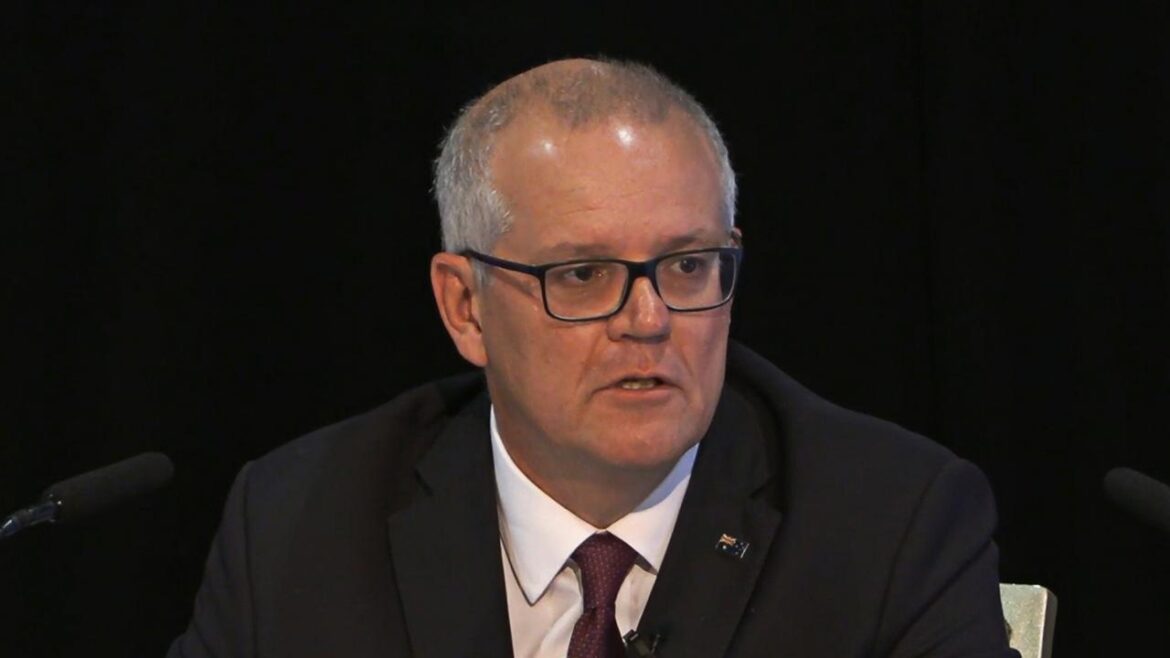Morrison says he was not told robodebt was unlawful until it had been running for four years
Former prime minister Scott Morrison says he trusted his department when he was told no new laws needed to be passed to make government’s disastrous robodebt scheme lawful and it was “inconceivable” advice to the contrary was not passed on to him.
Morrison, who was social services minister in July 2015 when the debt recovery program began, was grilled over his knowledge of the legality of the scheme over several hours at a royal commission hearing today.
Hundreds of thousands of Centrelink debts were issued under the robodebt scheme over more than four years – until the program was declared unlawful in the Federal Court in November 2019, leading to a $1.8 billion settlement for welfare recipients.

Morrison told the commission the first evidence suggesting the debt recovery program was unlawful came to him in the form of advice from the solicitor-general in August 2019.
“There was nothing to suggest to me … that it was unlawful … at that time or any other time, until the solicitor-general, provided the minister for government services with advice in 2019,” Morrison said.
As social services minister, Morrison supported the $1.2 billion cost-saving measure that became robodebt and took it to cabinet to be greenlit.
Morrison was also treasurer when the scheme was ramped up to issue hundreds of thousands of unlawful debts and prime minister when it was successfully challenged in court.
The royal commission heard that when Morrison was originally briefed on the scheme in February 2015, it was noted legislative changes would likely be needed.
The brief, signed by Morrison, said the Department of Human Services would work with the Department of Social Services to explore policy and legislative changes
However, a final policy proposal that went to the government’s expenditure review committee – a month later in March 2015 – made no mention of legislation being required.
Morrison was drilled by commissioner Catherine Holmes about why he did not question the abrupt change in advice about the need for new legislation.
“Within a matter of a few weeks, you’re getting a new policy proposal, it says legislation is not required,” Holmes asked.
“Why no concern about that as the responsible minister?”
Morrison responded that he trusted his department when they said there was no new legislation required.
“I do not consider that the department and the professional offices that were there arrived at that matter lightly,” Morrison said.
“We all now know that they had advice at that time. It is inconceivable to me that that would not have been raised with ministers.
“It’s just inconceivable.”
Yesterday, former human services minister Marise Payne was also questioned about what she knew of why the legal issues on robodebt were abruptly dropped.
“I don’t know the answer to that question, and I say that in all transparency,” Payne responded.
The royal commission has previously heard that as far back as 2014, the Department of Social Services received internal legal advice from its lawyers that the proposed robodebt scheme was unlawful.
Although that internal advice was reversed in 2017, law firm Clayton Utz gave its opinion to the department in 2018 that robodebt was unlawful.
Earlier today, Morrison was quizzed about describing himself as a “welfare cop on the beat” in a Sky News interview shortly after he was appointed social services minister in 2015.
Morrison said he was simply fulfilling part of his role as minister by cracking down on welfare fraud.
“I was doing my job to contribute to the broader objectives of the government by ensuring that taxpayers’ resources were not being expended inappropriately,” he said.
The automated robodebt scheme made use of data-matching algorithms to assess annual income data from the Tax Office against fortnightly Centrelink welfare payments.
This averaging system was later found to be an inaccurate means to calculate a debt, particularly for casual workers whose income varied from fortnight to fortnight.
The onus was also put on recipients to prove they did not owe the money.
Robodebt victims have shared harrowing stories of being pursued by debt collectors, suffering mental breakdowns and enduring extreme financial hardship in order to repay the money they were told they owed.
Outside of the royal commission, grieving relatives, including Queensland mum Kath Madgwick, have also linked robodebt to the suicides of their loved ones.
Readers seeking support and information about suicide prevention can contact Lifeline on 13 11 14 or Beyond Blue on 1300 224 636.








